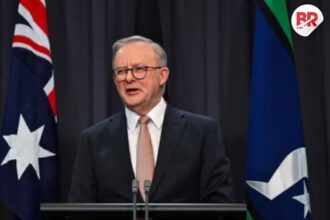
The Indian Space Research Organisation (ISRO) announced on Monday that the launch of the Axiom-4 mission, which will send Indian astronaut Shubhanshu Shukla to the International Space Station (ISS), has been postponed from June 10 to June 11.
The reason for the delay is bad weather. The new planned launch time is 5:30 PM Indian Standard Time (8:00 AM Eastern Standard Time) on June 11.

Launch of Axiom-4 mission to International Space Station:
Due to weather conditions, the launch of Axiom-4 mission for sending Indian Gaganyatri to International Space Station is postponed from 10th June 2025 to 11th June 2025.
The targeted time of launch is 5:30 PM IST on 11th…
— ISRO (@isro) June 9, 2025
Why the Delay?
ISRO shared on its social media that the launch was postponed due to weather conditions.
About the Mission
Shubhanshu Shukla, an officer from the Indian Air Force, will pilot this mission. This is a historic moment as he will be the first Indian to travel to the ISS and the second Indian ever to go to space. The first was Rakesh Sharma, who flew in 1984 with the Soviet Union.
The Axiom-4 mission includes four people: Shubhanshu Shukla, Commander Peggy Whitson, and two specialists, Tigor Kapu from Hungary and Slawosz Uznanski-Wisniewski from Poland.
The mission will launch from the Kennedy Space Center in Florida using SpaceX’s Falcon-9 rocket.
What Will Happen During the Mission?
The crew will spend 14 days on the ISS. During this time, they will talk with Indian Prime Minister Narendra Modi, school students, and leaders from the space industry. They will also perform scientific experiments and other tasks.
Before the launch, the crew and SpaceX team did a full practice run of the launch activities.
Science and Technology Minister Jitendra Singh called this mission a proud moment for India and a tribute to the country’s space pioneers, Vikram Sarabhai and Satish Dhawan.
Experiments by Shubhanshu Shukla
Shukla will carry out special food and nutrition experiments. These were created by ISRO and the Department of Biotechnology, with help from NASA. The goal is to learn how to create better nutrition and life support systems for long space journeys in the future.
In total, Shukla will perform seven experiments and participate in five joint research projects planned by NASA.












